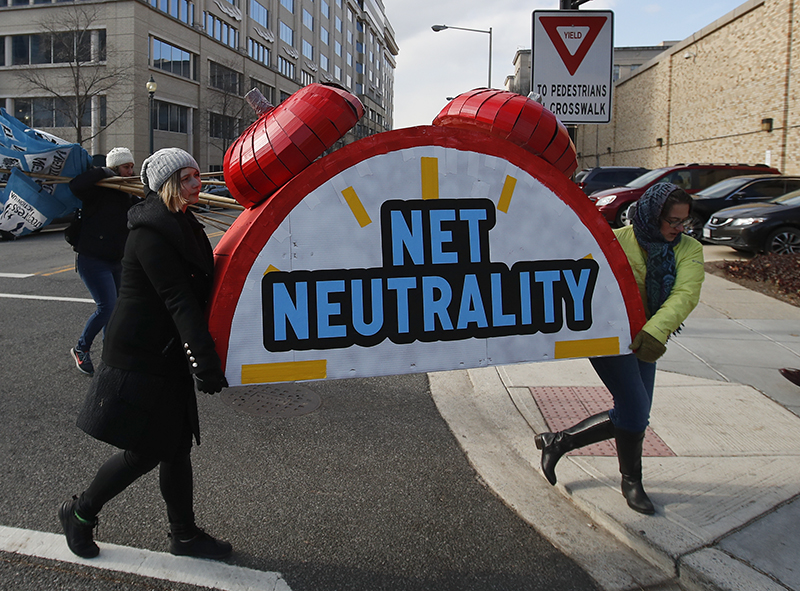Cuomo defies FCC on vote to reverse rules on net neutrality in N.Y.
'Like giving private car makers special, faster lanes on I-95'

Supporters of net neutrality carried the top of an alarm clock in Washington, D.C., after a protest at the Federal Communications Commission (FCC) in December, where FCC voted to dismantle net neutrality. Now Gov. Andrew Cuomo is defying FCC. AP photo by Carolyn Kaster
Defying the Federal Trade Commission (FCC), Gov. Andrew Cuomo signed an executive order on Wednesday directing the state not to enter into any contracts for internet service unless the internet service providers (ISPs) agree to follow net neutrality principles.
In the order, the governor leverages New York state’s clout as a “significant purchaser” of internet and broadband services.
Without net neutrality, Cuomo said in a statement, there is nothing to stop ISPs “from creating ‘fast and slow lanes’ on the internet, favoring content they have a financial stake in over content they do not profit from.”
